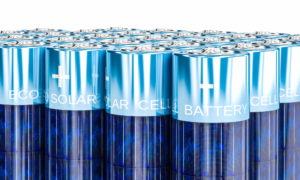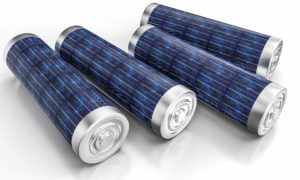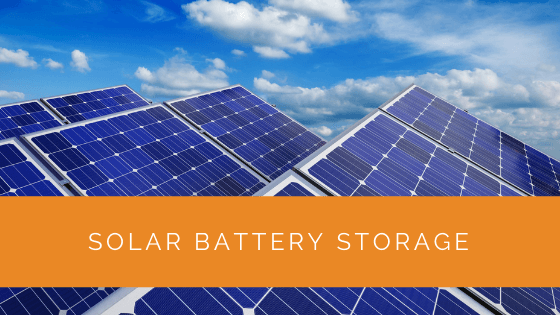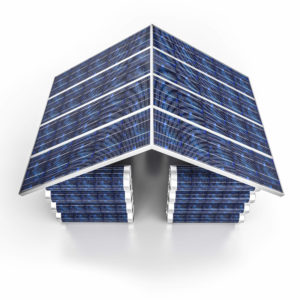Do you want to get the most out of your solar panel system? Then, buying a solar battery will be the perfect solution. If you have a solar panel installed or plan to get one, add a solar battery.
It’s because solar batteries let you use the energy generated by your panels more.
Combining PV panels and solar batteries has become popular for reducing energy bills. With an efficient solar battery storage system installed at home, you won’t depend too much on the energy supplier. As a result, more savings!
If you plan to get a solar battery soon, this post will tell you about it. Without further ado, let’s get started!
Contents
- 1 Key Takeaways
- 2 What is a Solar Battery Storage?
- 3 Why Do You Need Solar Battery Storage?
- 4 Types of Solar Batteries
- 5 Frequently Asked Questions
- 6 Case Study: Enhancing Energy Independence with Solar Battery Storage
- 7 Expert Insights From Our Solar Panel Installers About Solar Battery Storage
- 8 Discover the Power of Solar with Solar Panels Network
- 9 Wrapping Up
Key Takeaways
- Solar battery storage systems store excess energy generated by solar panels, allowing you to use them during cloudy days or at night without relying on the grid.
- They provide uninterrupted power, enhance security during electrical supply fluctuations, operate quietly, and contribute to reduced pollution compared to traditional generators.
- Different types of solar batteries, such as Lithium-Ion, Lead Acid, Flow, and Nickel Cadmium, offer various advantages and suitability for different applications, but each has pros and cons.
What is a Solar Battery Storage?
A solar battery storage system stores the energy your solar panels generate. The batteries work during the day and store all the electricity they can. When the PV system can’t produce power at night, the batteries come into play.
Battery storage systems let you power your home and various appliances even if the sun goes down! So, you can utilise the energy generated more efficiently without depending upon an external source.
Batteries for commercial backup and off-grid power systems have been in use for a long time.
Most of these battery storage options were expensive, which put a cap on their buyers. But with solar battery storage systems, you get the most cost-effective and reliable performance!
That’s why tech giants like Tesla and Samsung focus on developing solar battery storage. So, a solar battery is a must-have if you plan to go solar.
Why Do You Need Solar Battery Storage?
During the day, solar panels produce a lot of energy by harnessing the sun’s power. Depending upon the energy efficiency of the solar panel, it might have some extra energy.
The excess power might be transferred to the National Grid without a proper power storage system.
That’s when a solar battery storage system will help you use excess power wisely! Aren’t they amazing?
Let’s look at the top benefits solar battery storage systems have to offer –
Uninterrupted Power Solution
Solar panels work better when there is ample sunlight outside. But cloudy skies can reduce the power output if the weather is a bit dull. When the amount of energy your installed solar panels produce decreases, you might have to rely on the grid.
With a solar battery system by your side, you don’t have to worry too much about bad weather. Cloudy skies or rain showers won’t hamper their energy storage.
So, the energy created by the panels which aren’t utilised during the energy production is stored by the batteries. You can conveniently use this generated electricity when there isn’t much sunlight without drawing power from the grid.

Secure Power Supply
Solar battery systems can offer backup power when the electric supply is fluctuating.
Living in an area with outdated electrical supplies will be extremely useful. The chances of frequent blowouts and short circuits are high with ageing infrastructure. Home battery systems will protect you from any power supply accident.
Also, even if the grid becomes unstable and supply is hampered, solar battery systems will provide you power. This way, you can add a layer of security to your power supply.
Quiet Operation
Are you annoyed by the sound of your generator? Have your neighbours complained about it? No worries, as solar battery systems operate silently and don’t make annoying noises. So, if you have a standard generator and want an upgrade, go for a solar battery storage device.
These storage systems are also more power-efficient than your regular generators, so it’s a win-win!
Less Pollution
Standard power generators run on fossil fuels and cause air and noise pollution. In addition, most of the electricity generated in a power grid uses fossil fuels.
In both cases, the devices consume many resources and hamper your environment.
By installing a solar battery, you can reduce your carbon footprint, keeping the surroundings clean. As these solar batteries use fewer resources, they produce less waste. Furthermore, many solar batteries can run for over ten years and reduce environmental pollution.
Types of Solar Batteries
Solar batteries are of various types based on reliability, efficiency, usage, and durability. Let us take a closer look at them to understand their differences.
Lithium-Ion Batteries
These batteries are among the newest additions to the solar battery family and are gaining a lot of limelight.
Lithium-ion batteries are used in electric cars, most importantly the Tesla Powerwall. The company connects multiple Lithium-ion batteries and compiles them using a liquid-cooled battery pack. Tesla manufactures loads of these batteries for their Tesla Powerwall project.
A Lithium-ion battery has a longer life and is famous for being extremely durable. They have a longer depth of discharge than most batteries. So, at 70-80% discharge level, the number of cycles you’ll get will be around 4000 to 6000.
Pros
- They come with a shelf life of almost two decades, around 15 to 18 years
- They have a better depth of discharge than lead-acid batteries
- Having high storage capacity and modern battery technology
- They are most suitable for home solar installation
Cons
- More expensive than lead-acid batteries, and most battery types
- A lithium-ion battery has a higher chances of electrical accidents

Lead Acid Batteries
They are perhaps the most popular solar battery options and have been used for decades. You can easily find a lead-acid battery in your car. But a lead-acid battery will look different for any solar PV system, usually taller.
To charge your residence, the lead-acid battery system will contain multiple batteries. You must keep them in a cool, shaded area, away from bad weather.
No matter how many new batteries try to outshine it, Lead-acid batteries will always stay well-loved due to their excellent reliability. In addition, these are used in various fields due to their affordability.
Lead-acid batteries are excellent options for off-grid solar systems.
Pros
- Excellent performance at an affordable rate
- Reliable and uninterrupted service
- You can easily recycle and dispose of these batteries
- Compatible with many solar power systems
Cons
- They occupy a lot of space and might emit hydrogen gas
- Heat can damage these batteries and reduce their life
Flow Batteries
Flow batteries have a water-based chemical solution inside them, which gives rise to the name. There is a zinc bromide electrolyte flowing between two chambers inside the battery.
When the batteries are charged, the chemical reactions let the device store energy.
You can consider them an evolving technology with excellent performance. They are best suited for any commercial solar PV system. However, some companies are developing these batteries for residential purposes.
They have become extremely popular for offering maximum depth of discharge. It is way more than lead-acid and lithium-ion batteries. So you can discharge it completely without affecting its shelf life.
Pros
- They offer a lifespan of 4000 cycles with great power storage
- They can survive extreme temperatures
- The chemical inside is fire-repellent, so thermal runaway is not possible.
Cons
- They are more expensive than most solar batteries
- Flow batteries have low storage capacity
Nickel Cadmium Batteries
Nickel-cadmium batteries (Ni-Cd) are another excellent option but not as popular as Lithium-ion or lead-acid batteries. They have been used since the 1800s and late 90s and were quite popular. But modern solar battery technologies have put Ni-Cd batteries in the backseat.
They are widely used in the aircraft industry. Ni-Cd batteries are safe options as no harmful chemicals are used while developing them. Along with this, these batteries can be used in a wide variety of temperatures.
Usually, they are used for large utility solar PV systems or other large-scale installations.
Pros
- They have an extremely durable structure and require no maintenance
- They are completely recyclable and don’t need any e internal cooling system
- No battery management system is required
- 80% depth of discharge (DOD)
Cons
- They are not very good backup power options, as they don’t hold much charge.
- You might face problems while disposing of these batteries
Frequently Asked Questions
After checking out the pros and cons of the various solar batteries, you might have understood what you need. If you still have doubts, these questions will offer you some clarity.
Where Should Solar Batteries be Stored?
Unlike solar panels out in the sun, you must keep your solar batteries inside. As a rule, you should keep your batteries in a cool and shaded area. The please should be good enough to protect your batteries from harsh climatic conditions.
Also, the place needs to have proper air circulation. It’s important as some batteries might emit harmful gases; search is hydrogen. Keep those batteries in a well-ventilated place to shield yourself from these fumes.
So, keeping your batteries in a durable and insulated box would be best. Then, place the box in your garage or an enclosed space.
Is Solar Battery Storage Worth It?
Yes, solar batteries are the most efficient way to store solar energy. These batteries have commendable storage capacity and also offer excellent performance. This allows you to properly store the power generated by solar PV systems and use it anytime you want.
Solar battery storage is also a safe power conservation option that protects you from electrical accidents.
The offer of a reliable source of backup power with good power output. Most of these products come with a reasonable warranty and long shelf life.

How Do I Keep My Solar Battery Healthy?
The first step in keeping your solar battery healthy is to store it in a weatherproof place. Ensure that they are not exposed to too much water or heat. It will automatically enhance their shelf life.
Then, you need to reduce the number of batteries if possible. Using multiple batteries can increase their resistance and lead to unstable charging. Use not more than four batteries to keep the entire storage system healthy.
You also need to ensure the batteries aren’t uncharged for long. When batteries sit idly for too long, they can get damaged and might not work properly.
So, always check whether the charging cable is connected and the source is turned on.
How Much Power Can a Solar Battery Store?
The energy or power a solar battery can hold depends upon its design, use, and storage capacity. Smaller battery systems can hold 2 kWh of power, while larger systems can store up to 8 to 10 kWh.
Suppose your solar battery can store 18 kWh of power and has a power of 6 kilowatts. Then, you’ll be able to charge the battery at a maximum rate of 6 kilowatts. It will take 3 hours to get it fully charged.
High-efficiency batteries such as the Tesla Powerwall can store up to 13.5 kWh of solar energy. Therefore, a five kw solar PV system will take around 3 hours to recharge the batteries.
Case Study: Enhancing Energy Independence with Solar Battery Storage
Background
A family in Sussex aimed to increase their energy independence and reduce their electricity costs by integrating a solar battery storage system with their existing solar PV installation. They sought a solution that would allow them to store excess solar energy generated during the day for use during nighttime and peak demand periods.
Project Overview
The project involved assessing the household’s energy consumption, selecting the appropriate battery type and size, and integrating the system with their existing solar PV setup. The key objectives were to enhance energy efficiency, ensure reliable power supply during outages, and maximise cost savings.
Implementation
- System Assessment: Conducted a detailed analysis of the household’s daily and seasonal energy consumption patterns to determine the required battery capacity.
- Battery Selection: Chose a 10 kWh Lithium-ion battery due to its high efficiency, durability, and compatibility with the existing solar PV system.
- Installation:
- Scaffolding and Safety Measures: Set up scaffolding for safe installation of the battery system alongside the existing inverter.
- Wiring and Configuration: Integrated the battery with the inverter and configured the system for optimal energy flow management between the solar panels, battery, and grid.
- Monitoring System: Installed a real-time monitoring system to track energy storage and usage, enabling the family to optimise their energy consumption.
Results
- Energy Independence: The battery system provided sufficient capacity to cover the household’s nighttime and peak-hour energy needs, significantly reducing reliance on the grid.
- Cost Savings: The use of stored solar energy during peak times led to a substantial reduction in electricity bills, with a projected return on investment within 7-8 years.
- Environmental Benefits: The system allowed the household to maximise their use of renewable energy, thereby reducing their carbon footprint and contributing to a more sustainable lifestyle.
Summary
The successful integration of a solar battery storage system enabled the family to achieve greater energy independence, reduce electricity costs, and enhance energy security. This case study underscores the benefits of combining solar PV systems with battery storage, providing a reliable and efficient energy solution that supports sustainable living.
Expert Insights From Our Solar Panel Installers About Solar Battery Storage
Integrating a solar battery storage system with your PV setup is a game-changer. It allows homeowners to store excess energy and use it during peak times, reducing dependency on the grid and lowering electricity bills.
Lead Solar Technician
Choosing the right type of solar battery is crucial for maximising efficiency and longevity. Lithium-ion batteries are popular due to their high energy density and long cycle life, making them ideal for most residential and commercial applications.
Renewable Energy Specialist
Solar batteries are not just about storage; they also provide energy security. In regions with frequent power outages, a well-sized battery can keep essential appliances running, providing peace of mind for homeowners.
Senior Solar Installer
Discover the Power of Solar with Solar Panels Network
Are you navigating the world of solar installations? Look no further than Solar Panels Network, the UK’s trusted partner in harnessing the sun’s potential. Our dedication goes beyond just installations; we’re on a mission to transform how homeowners and businesses across the UK perceive and utilise energy. By choosing us, you’re reducing your carbon footprint and making a smart financial move that promises savings for years ahead. Contact us today and embark on your solar journey.
Wrapping Up
Even if the sun rises daily, it might not shine as brightly as you expect. A solar battery storage system at home will help you brighten up those dull days. Offering you an eco-friendly power backup solution, solar batteries help protect the PV system.
When shopping for a solar battery, always keep certain factors in mind. These include battery capacity, usable capacity, depth of discharge (DoD), warranty, and lifespan. In addition, you need to consider how much power you want to draw using them.
About the Author
Solar Panels Network stands at the forefront of solar energy solutions, driven by a team of seasoned solar engineers and energy consultants. With over decades of experience in delivering high-quality solar installations and maintenance, we are committed to promoting sustainable energy through customer-centric, tailored solutions. Our articles reflect this commitment, crafted collaboratively by experts to provide accurate, up-to-date insights into solar technology, ensuring our readers are well-informed and empowered in their solar energy decisions.


